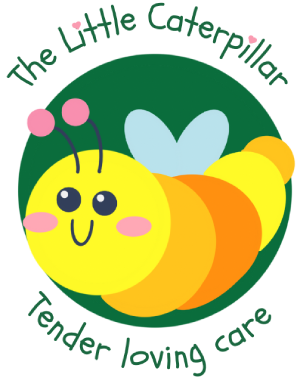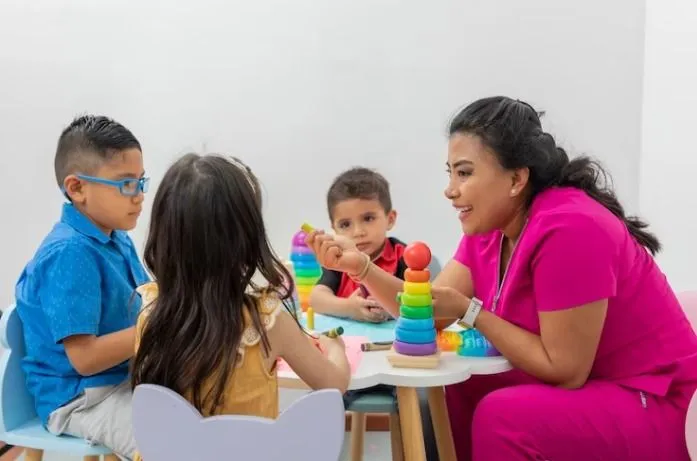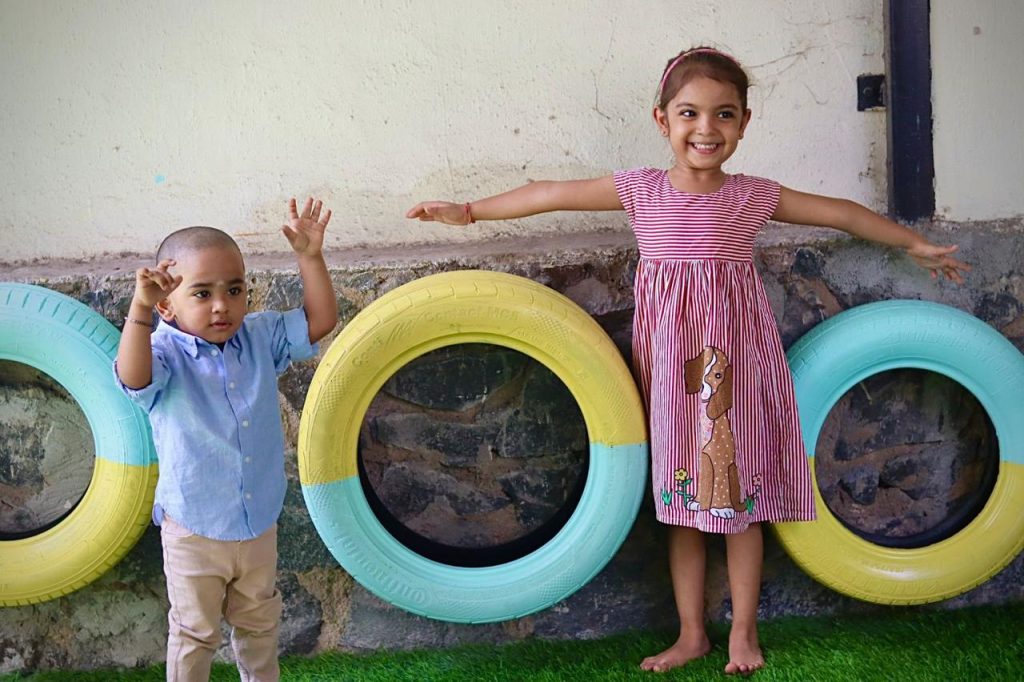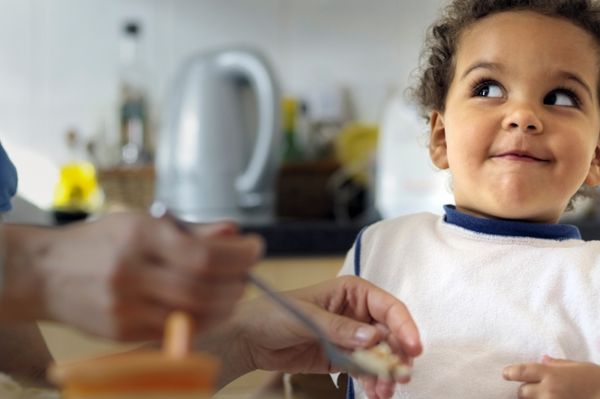Table of Contents
Introduction
At The Little Caterpillar playschool in Chennai, toddlers aged 1.5 to 4 years embark on a journey of learning and development inspired by the Montessori and Reggio Emilia philosophies, enriched with a vibrant Indian flavor. Beyond academic enrichment, the playschool places a strong emphasis on instilling family values, collaboration, and a sense of pride in helping around the house among its young learners. This blog explores effective strategies to coach mothers in guiding toddlers to contribute to household tasks, fostering a sense of responsibility, and nurturing important life skills.
The Montessori and Reggio Emilia Philosophies: Foundations of Inspiration
The Montessori method emphasizes independence, self-directed learning, and practical life skills as integral components of early childhood education. Similarly, the Reggio Emilia approach values collaboration, respect for children’s interests, and the importance of a supportive learning environment that extends into the family context. At The Little Caterpillar, these philosophies guide the integration of household contributions into toddlers’ daily routines.
Understanding the Developmental Stage of Toddlers
- Capabilities and Interests:
Toddlers aged 1.5 to 4 years are in a crucial stage of development characterized by curiosity, imitation, and a desire for independence. They are eager to engage in meaningful activities and are capable of performing simple tasks with guidance and support. - Sensory and Hands-On Learning:
Young children learn best through sensory experiences and hands-on activities. Household tasks provide opportunities for toddlers to explore different textures, practice fine and gross motor skills, and develop spatial awareness. - Social and Emotional Development:
Engaging in household contributions fosters toddlers’ social-emotional development by promoting cooperation, empathy, and a sense of belonging within the family unit. It enhances their self-esteem and sense of competence as they make meaningful contributions to daily routines.
Coaching Mothers: Strategies for Effective Guidance
- Creating a Positive Environment:
Encouraging mothers to create a positive and supportive environment at home is essential for nurturing toddlers’ willingness to help. Positive reinforcement, praise, and encouragement motivate children to participate in household tasks willingly and develop a sense of pride in their contributions. - Age-Appropriate Tasks:
Identifying age-appropriate tasks based on toddlers’ developmental abilities ensures success and promotes independence. Simple tasks such as putting away toys, watering plants, setting the table with assistance, and sorting laundry are suitable for toddlers and contribute to their sense of responsibility. - Modeling and Guided Participation:
Mothers play a crucial role as role models for toddlers. Demonstrating tasks, breaking them down into manageable steps, and providing guided participation empower children to learn through observation and practice. Gradually increasing the complexity of tasks encourages skill development and mastery.
Integrating Family Values and Collaboration
- Family Meetings and Discussions:
Incorporating family meetings or discussions at The Little Caterpillar encourages open communication and collaboration among family members. Toddlers have opportunities to share their ideas, preferences, and contributions to household routines, fostering a sense of ownership and responsibility. - Cultural Traditions and Rituals:
Celebrating cultural traditions and rituals at home reinforces family values and strengthens toddlers’ connection to their cultural heritage. Tasks related to festival preparations, cooking traditional meals, or creating decorations promote cultural pride and meaningful family bonding. - Teamwork and Cooperation:
Encouraging teamwork and cooperation among siblings and family members instills valuable social skills and empathy in toddlers. Collaborative tasks, such as cleaning up together after meals or organizing shared spaces, reinforce the importance of working together towards common goals.
Building Pride and Confidence in Household Contributions
- Celebrating Achievements:
Acknowledging toddlers’ efforts and achievements in household tasks builds their self-esteem and confidence. Celebrating small milestones, such as independently dressing themselves or helping with cooking, reinforces a sense of accomplishment and encourages continued participation. - Creating Meaningful Connections:
Linking household contributions to toddlers’ interests and personal experiences makes tasks more meaningful. For example, gardening activities can connect to learning about plants and nature, while cooking together promotes healthy eating habits and culinary skills. - Documentation and Reflection:
At The Little Caterpillar, documentation of toddlers’ learning journeys through photographs, artwork, or written reflections encourages self-reflection and reinforces learning outcomes. Displaying children’s contributions to household tasks in a visible manner fosters a sense of pride and ownership.
Practical Implementation at The Little Caterpillar Playschool
- Home-School Partnerships:
Establishing strong home-school partnerships at The Little Caterpillar ensures continuity in toddlers’ learning experiences. Teachers provide guidance and resources to mothers, facilitating discussions on integrating household contributions into daily routines and supporting toddlers’ developmental milestones. - Supporting Diverse Family Structures:
Recognizing and respecting diverse family structures and cultural backgrounds enriches the learning environment at The Little Caterpillar. Teachers offer personalized support and adaptations to accommodate varying family dynamics and preferences for incorporating household tasks. - Continuous Professional Development:
Ongoing professional development for teachers and caregivers at The Little Caterpillar enhances their knowledge and skills in coaching mothers and supporting toddlers’ holistic development. Workshops, seminars, and collaborative learning opportunities promote best practices in early childhood education and family engagement.
Theoretical Framework and Research Support
- Vygotsky’s Socio-Cultural Theory:
Emphasizes the role of social interactions and cultural context in children’s learning and development. At The Little Caterpillar, coaching mothers to guide toddlers in household contributions promotes collaborative learning experiences and supports socio-emotional growth. - Montessori Education:
Highlights the importance of practical life activities in promoting independence, concentration, and coordination. Integrating household tasks into toddlers’ routines at The Little Caterpillar aligns with Montessori principles and enhances children’s sense of responsibility and self-confidence. - Reggio Emilia Approach:
Encourages collaboration between families, educators, and the community in supporting children’s learning and development. Coaching mothers to engage toddlers in household contributions reflects the Reggio Emilia principles of respecting children’s capabilities and fostering meaningful interactions within the family context.
Conclusion: Empowering Mommy’s Little Elves
In conclusion, The Little Caterpillar playschool in Chennai empowers toddlers, affectionately known as “Mommy’s Little Elves,” to contribute meaningfully to household tasks while nurturing family values, collaboration, and a sense of pride in their capabilities. By integrating the Montessori and Reggio Emilia philosophies with a vibrant Indian flavor, the playschool creates a supportive environment where toddlers learn through hands-on experiences, guided participation, and positive reinforcement from their mothers.
Founder Nikita Viswanath and the dedicated team at The Little Caterpillar are committed to coaching mothers in fostering toddlers’ independence, responsibility, and social-emotional development through household contributions. Together, they create opportunities for toddlers to thrive, grow, and make meaningful contributions within their families and communities—a testament to the transformative power of early childhood education and family engagement done with love, dedication, and cultural sensitivity.
As The Little Caterpillar continues to innovate and evolve, its commitment to empowering Mommy’s Little Elves remains steadfast. Through collaborative partnerships with families, celebration of cultural traditions, and personalized guidance in household tasks, the playschool prepares toddlers for a future filled with confidence, resilience, and a deep appreciation for their role within the family unit and society at large.

-乳幼児〜小学生までの知育・教育メディア-.jpeg)


